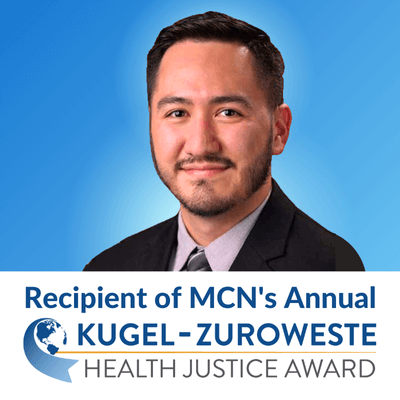Five on Friday: State Protections Needed for Farmworkers

It can be a challenge to select just five pieces to highlight each week, particularly with the speed of the news cycle these days. Here are some of the articles that we bet you haven’t seen yet this week -- and we think you’ll enjoy them and maybe find them useful in your own work in health justice. Pull up a chair, grab some tea, and dive into this week’s Five on Friday:
Amy said, "This is a good article with a chart that outlines all of the state protections (or lack thereof) provided to farmworkers during COVID-19.” Read the article and access that chart on EWG’s site: “Seven Months Into Pandemic, Most States Still Don’t Require Farmworker Protections.”
![]()
Ed forwarded on this video interview from JAMA with William H. Foege, MD, MPH, Emeritus Distinguished Professor of International Health at the Rollins School of Public Health at Emory University, noting that although they don’t specifically address essential workers like migrant agricultural workers, it is still well worth the listen: “Who Gets Coronavirus Vaccine First?” (Note that free CME credits are available.)
![]()
Del added more to the conversation on ensuring safety of COVID-19 vaccines and communicating that safety, sharing an interesting CBS News piece, “Black Physicians Group to Independently Vet Safety of COVID-19 Vaccines.”
![]()
What – or who -- drives COVID-19 misinformation? After a conversation about some news articles on the topic, Kaethe shared new Cornell University research that had the media researchers concluding, “the President of the United States was likely the largest driver of the COVID-19 misinformation ‘infodemic.’” Read the research: “Coronavirus Misinformation: Quantifying Sources and Themes in the COVID-19 ‘Infodemic.’"
![]()
As Amy’s recommended article above shows, more and more states and counties are enacting protections for agricultural workers. "Santa Barbara County Strengthens COVID Protocols at Farmworker Housing After Outbreaks” says that “as with other issues affecting farmworkers, CAUSE (Central Coast Alliance United for a Sustainable Economy) was actively engaged in getting these orders passed. Regular screening, according to Community Organizing Director Hazel Davalos, is critical to keep a positive case of one worker from developing into a full-blown outbreak.” Read about CAUSES’s efforts and the new regulation.
Have a safe and healthy weekend.
Like what you see? Amplify our collective voice with a contribution.
Got some good news to share? Contact us on our social media pages above.
Return to the main blog page or sign up for blog updates here.
- Log in to post comments










